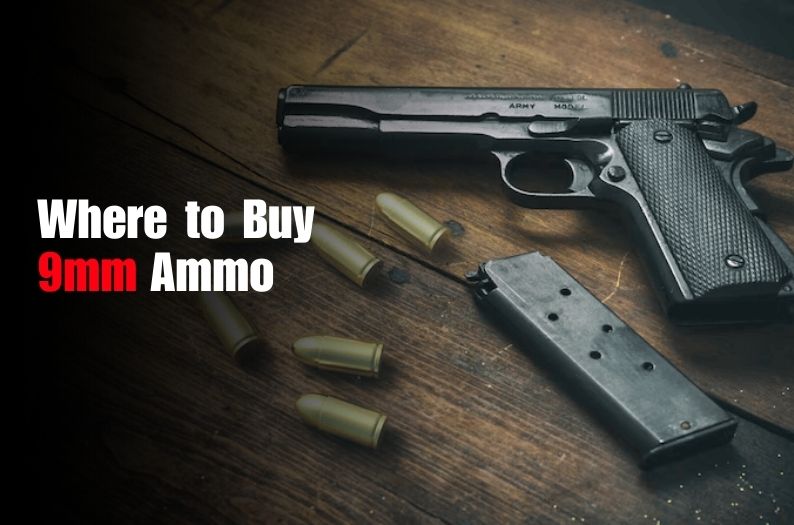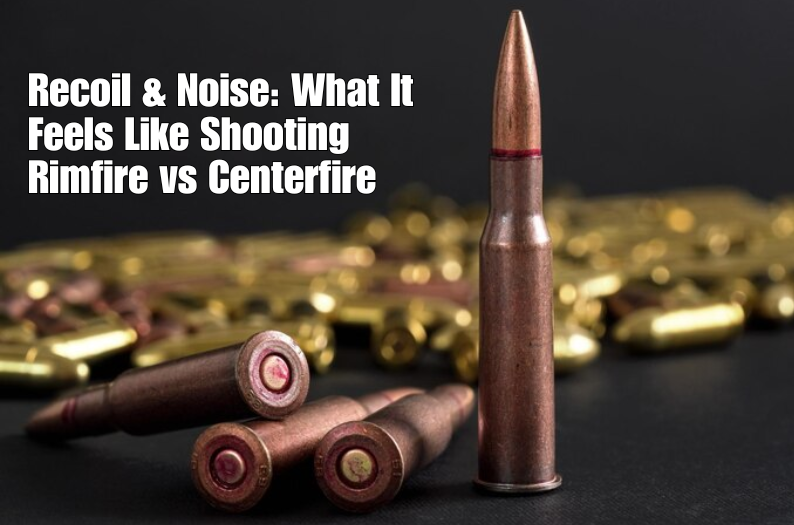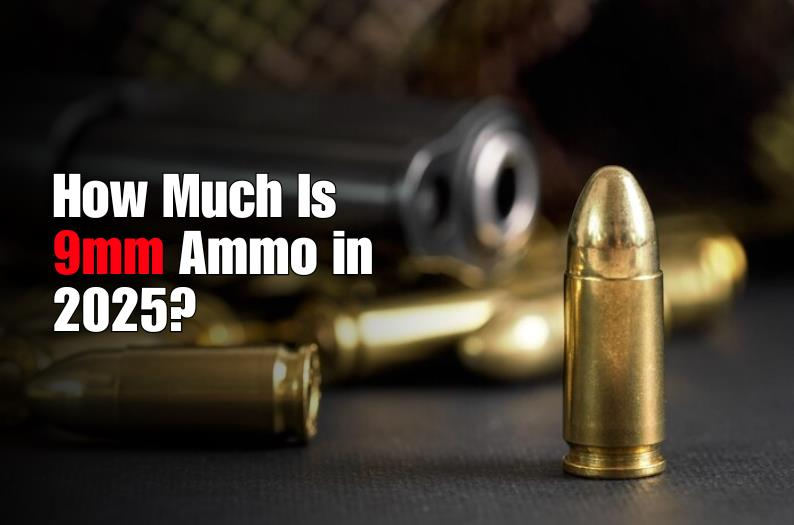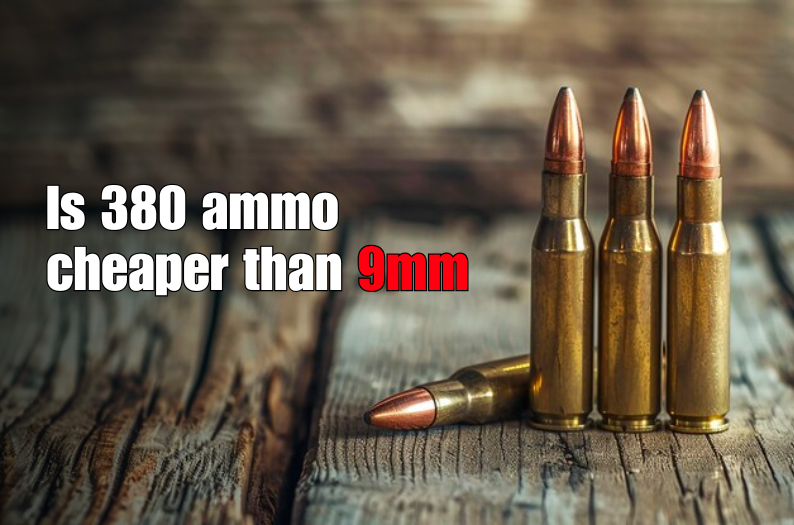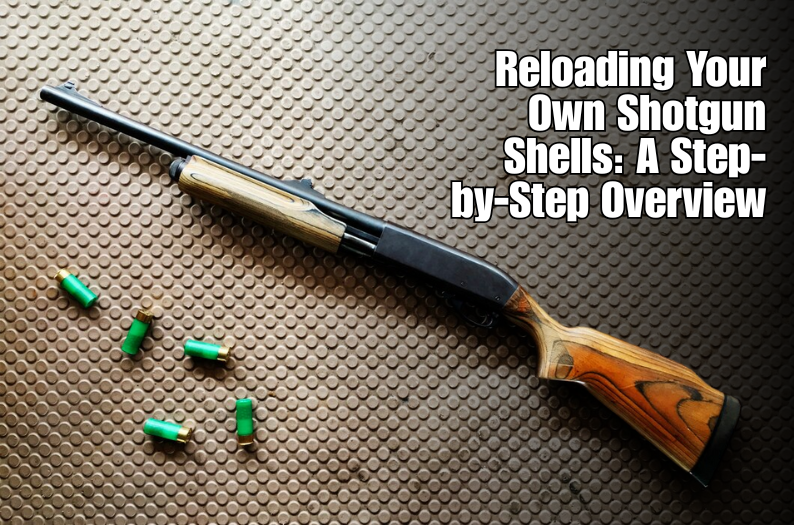Introduction
When it comes to self-defense, choosing the right ammunition is critical. Among the various types of bullets available, hollow point bullets stand out as a top choice for personal protection. Their unique design, which ensures maximum stopping power while minimizing the risk of over-penetration, makes them the preferred option for law enforcement, military personnel, and civilians alike. In this guide, we will delve into the intricacies of hollow point bullets, exploring their design, functionality, advantages, and why you should consider purchasing them for your self-defense needs.
1. What Are Hollow Point Bullets?
a. Design and Structure
Hollow point bullets are a specialized type of ammunition designed with a hollowed-out cavity in the nose. This cavity causes the bullet to expand upon impact, creating a larger wound channel and delivering maximum energy to the target. The design is intended to maximize stopping power while minimizing the risk of over-penetration, which can be a significant concern in self-defense scenarios.
- Core Composition: Typically made from a lead core, hollow point bullets are often jacketed with copper or another hard metal to ensure the bullet holds together upon impact.
- Expansion Process: The hollow point design allows the bullet to expand, or “mushroom,” as it strikes a target. This expansion increases the diameter of the bullet, causing it to slow down more rapidly and transfer more energy to the target.
b. How Do Hollow Point Bullets Work?
Upon striking a soft target, such as human tissue, the hollow point bullet’s cavity begins to expand. The pressure from the impact forces the cavity to widen, causing the bullet to deform and increase in size. This expansion slows the bullet down, allowing it to transfer its kinetic energy more effectively into the target.
- Controlled Expansion: Unlike full metal jacket (FMJ) bullets, which can pass through a target without losing much speed, hollow points are designed to expand and stay within the target, reducing the risk of collateral damage.
- Wound Channel: The expansion creates a larger wound channel, which is more likely to incapacitate an attacker quickly, making hollow points a preferred choice for self-defense.
2. Advantages of Hollow Point Bullets
a. Superior Stopping Power
One of the primary reasons why hollow point bullets are favored for self-defense is their superior stopping power. The bullet’s ability to expand upon impact increases the chance of quickly incapacitating a threat.
- Immediate Impact: The rapid expansion of the bullet ensures that it delivers maximum energy to the target, stopping the threat more effectively than other types of ammunition.
- Increased Energy Transfer: The expansion process helps to transfer more energy from the bullet to the target, reducing the likelihood of the bullet passing through and causing unintended harm.
b. Minimized Over-Penetration
Over-penetration is a serious concern in self-defense situations, especially in populated areas. Hollow point bullets are designed to minimize this risk by expanding upon impact and staying within the target.
- Safety for Innocent Bystanders: By reducing the likelihood of the bullet passing through the target, hollow points help to protect innocent bystanders who might be in the vicinity.
- Effective Target Neutralization: The controlled expansion ensures that the bullet stays within the target, delivering all of its energy where it is needed most.
c. Enhanced Accuracy
Hollow point bullets are known for their accuracy, making them a reliable choice for self-defense. The design of the bullet allows it to maintain stability during flight, ensuring that it hits the target precisely where it is aimed.
- Stable Flight Path: The aerodynamic design of hollow point bullets helps to maintain a stable flight path, reducing the likelihood of the bullet tumbling or veering off course.
- Consistent Performance: Hollow points are designed to perform consistently, even under various environmental conditions, ensuring reliable accuracy in high-stress situations.
d. Reduced Risk of Ricochet
Due to their design, hollow point bullets are less likely to ricochet off hard surfaces compared to FMJ bullets. This makes them a safer option in environments where there is a risk of the bullet striking a hard surface and bouncing back.
- Increased Safety: The reduced risk of ricochet further enhances the safety of hollow point bullets, making them a responsible choice for self-defense in both urban and rural environments.
3. Hollow Point Bullets vs. Other Ammunition Types
a. Comparison with Full Metal Jacket (FMJ) Bullets
FMJ bullets are commonly used for target practice and military applications, where deep penetration is required. However, in self-defense situations, FMJ bullets can pose a risk due to their tendency to over-penetrate.
- Penetration: FMJ bullets are designed to penetrate deeply, which can be dangerous in self-defense scenarios as they may pass through the target and harm others.
- Wound Channel: FMJ bullets create a smaller wound channel compared to hollow points, reducing their effectiveness in stopping a threat quickly.
b. Comparison with Soft Point Bullets
Soft point bullets are another type of expanding ammunition, but they do not expand as rapidly or as widely as hollow points. While they offer some advantages, they are generally considered less effective for self-defense.
- Expansion: Soft point bullets expand more slowly, which can result in deeper penetration but less immediate stopping power.
- Use Cases: Soft points are often used for hunting, where deeper penetration is required to reach vital organs in larger game. However, for self-defense, hollow points are generally the better choice.
c. Comparison with Frangible Bullets
Frangible bullets are designed to disintegrate upon impact, reducing the risk of over-penetration and ricochet. While they offer some advantages, they may not have the stopping power required for self-defense.
- Fragmentation: Frangible bullets break apart upon impact, which can limit their penetration and reduce their effectiveness in stopping a threat.
- Best Use: Frangible bullets are often used in training environments or scenarios where over-penetration is a significant concern, but they may not be the best choice for personal protection.
4. Choosing the Right Hollow Point Bullet for Self Defense
a. Considerations for Selecting Hollow Point Ammunition
When choosing hollow point bullets for self-defense, several factors should be considered to ensure that you select the best ammunition for your needs.
- Caliber: Ensure that the hollow point bullets you choose are compatible with your firearm’s caliber. Popular calibers for self-defense include 9mm, .45 ACP, .40 S&W, and .38 Special.
- Brand Reputation: Choose hollow point bullets from reputable manufacturers known for their quality and reliability. Some of the top brands include Federal, Hornady, Speer, and Winchester.
- Performance Testing: It is essential to test any ammunition in your firearm before relying on it for self-defense. Testing allows you to evaluate the accuracy, expansion, and reliability of the bullets in your specific firearm.
b. Top Hollow Point Bullet Brands for Self Defense
Several brands have established themselves as leaders in the production of high-quality hollow point bullets. Here are some of the top options available on the market:
- Federal HST: Known for its consistent expansion and deep penetration, Federal HST is a top choice for law enforcement and civilians alike.
- Hornady Critical Defense: Designed specifically for personal protection, Hornady Critical Defense offers reliable expansion and minimal recoil, making it an excellent option for concealed carry.
- Speer Gold Dot: Trusted by law enforcement agencies across the country, Speer Gold Dot bullets are renowned for their accuracy and controlled expansion.
- Winchester PDX1 Defender: The Winchester PDX1 Defender is another excellent choice, offering reliable penetration and expansion in various conditions.
- Remington Golden Saber: Remington’s Golden Saber line is designed for maximum stopping power, making it a popular choice for self-defense.
5. Legal and Ethical Considerations for Using Hollow Point Bullets
a. Legal Considerations
Before purchasing hollow point bullets, it is essential to understand the legal landscape surrounding their use. While hollow points are legal in most states for civilian use, some jurisdictions have specific regulations or restrictions.
- State Laws: In the United States, the legality of hollow point bullets varies by state. For example, New Jersey has strict regulations regarding hollow point ammunition, while other states allow their use without restrictions.
- International Regulations: Some countries have stricter regulations regarding the use of hollow points, particularly for civilian use. It is crucial to understand and comply with local laws if you plan to travel with firearms.
b. Ethical Considerations
The use of deadly force is a serious matter, and it is essential to consider the ethical implications of using hollow point bullets for self-defense.
- Justifiable Use: Hollow point bullets should only be used in situations where deadly force is justified, such as when facing an imminent threat of death or serious injury.
- Minimizing Harm: The goal of using hollow point bullets is to stop a threat quickly and effectively while minimizing the risk of harm to innocent bystanders.
6. The Science Behind Hollow Point Bullets: Ballistics and Performance
a. Ballistic Performance of Hollow Points
Understanding the ballistic performance of hollow point bullets is essential to appreciating their effectiveness in self-defense scenarios. Ballistics refers to the behavior of a bullet from the moment it is fired until it hits its target, and it is a critical factor in determining the suitability of a particular type of ammunition.
- Muzzle Velocity: The speed at which a bullet leaves the barrel of a firearm is known as muzzle velocity. Hollow point bullets typically have a slightly lower muzzle velocity compared to FMJ rounds due to their design, but this does not diminish their effectiveness. The controlled expansion upon impact compensates for any difference in velocity.
- Energy Transfer: Hollow points are engineered to maximize energy transfer to the target. When the bullet expands, it slows down, ensuring that the majority of its kinetic energy is deposited within the target, increasing the likelihood of immediate incapacitation.
- Trajectory: The trajectory of a bullet refers to the path it follows from the firearm to the target. Hollow point bullets are designed to maintain a relatively flat trajectory, ensuring that they hit the intended point of aim. This characteristic is particularly important in self-defense situations where accuracy can be the difference between life and death.
b. Penetration and Expansion in Various Mediums
Hollow point bullets are tested in various mediums, such as ballistic gel, to simulate their performance in real-world scenarios. These tests provide valuable insights into how the bullets will behave when they encounter different barriers, such as clothing, walls, or glass.
- Clothing: In self-defense situations, an attacker may be wearing multiple layers of clothing. Hollow points are designed to penetrate clothing without clogging the hollow cavity, ensuring that they still expand upon impact with the target.
- Ballistic Gel: Ballistic gel is used to simulate human tissue, and hollow points are tested in this medium to observe their expansion and penetration characteristics. High-quality hollow points typically expand uniformly and penetrate to an optimal depth, creating a large wound channel.
- Barriers: In certain situations, a bullet may need to pass through a barrier, such as a car door or window, before reaching the target. Premium hollow point bullets are engineered to perform reliably even after penetrating such barriers, ensuring that they still expand and deliver the necessary stopping power.
7. Myths and Misconceptions About Hollow Point Bullets
a. Hollow Points Are "Too Lethal"
One common misconception is that hollow point bullets are excessively lethal and therefore unsuitable for civilian use. However, this belief overlooks the fact that the primary purpose of hollow points is to stop a threat as quickly as possible while minimizing the risk to innocent bystanders.
- Reality: The expansion of hollow point bullets reduces the risk of over-penetration, which could potentially harm others. This makes them a safer and more responsible choice for self-defense compared to FMJ bullets, which are more likely to pass through a target and continue traveling.
b. Hollow Points Are Illegal
Another misconception is that hollow point bullets are illegal for civilian use in many places. While it is true that some jurisdictions have restrictions on hollow points, they are legal in most states and countries for personal protection.
- Reality: It is important to understand and comply with local laws regarding ammunition. In the United States, hollow points are legal in the vast majority of states, and they are widely used by law enforcement and civilians alike.
c. All Hollow Points Are the Same
Some people believe that all hollow point bullets are created equal, but this is not the case. There are significant differences in performance, quality, and design among various brands and models of hollow point ammunition.
- Reality: Not all hollow points offer the same level of expansion, accuracy, or reliability. It is essential to choose a reputable brand and test the ammunition in your specific firearm to ensure that it meets your needs.
8. Common Uses of Hollow Point Bullets
a. Self-Defense
The primary use of hollow point bullets is for self-defense. Their ability to expand upon impact and transfer maximum energy to the target makes them ideal for quickly stopping a threat.
- Home Defense: Hollow points are an excellent choice for home defense because they reduce the risk of over-penetration, which could endanger family members or neighbors. Their stopping power ensures that an intruder is neutralized as quickly as possible.
- Concealed Carry: Many individuals who carry a concealed firearm choose hollow point ammunition for the same reasons. The ability to stop a threat quickly and minimize the risk to others is crucial in public spaces.
b. Law Enforcement
Law enforcement agencies around the world rely on hollow point bullets for their duty weapons. The need to stop a suspect quickly and safely, particularly in urban environments, makes hollow points the preferred choice.
- Effective Threat Neutralization: In high-stress situations, law enforcement officers need ammunition they can trust to perform consistently. Hollow points provide the accuracy, expansion, and stopping power necessary to protect both the officers and the public.
c. Hunting
While not as common as soft point or FMJ bullets, hollow points are sometimes used for hunting, particularly for small to medium-sized game.
- Ethical Hunting: The rapid expansion of hollow point bullets ensures a quick, humane kill by delivering maximum energy to the vital organs. This reduces the chance of the animal suffering and increases the likelihood of a successful hunt.
9. How to Test and Store Hollow Point Bullets
a. Testing Hollow Points in Your Firearm
Before relying on hollow point bullets for self-defense, it is essential to test them in your specific firearm. Not all firearms will feed or shoot hollow points the same way, so testing is critical to ensure reliability.
- Feeding and Cycling: Load and fire several rounds of hollow point ammunition to ensure that your firearm can feed and cycle them reliably. Pay attention to any malfunctions or feeding issues, as these could indicate compatibility problems.
- Accuracy Testing: Take the time to test the accuracy of the hollow point bullets in your firearm. Ensure that they hit the point of aim consistently, as accuracy is crucial in self-defense situations.
b. Proper Storage of Hollow Point Ammunition
Storing your hollow point bullets correctly will help ensure they remain reliable and effective over time. Proper storage practices can also prevent damage to the ammunition and reduce the risk of accidental discharge.
- Cool, Dry Environment: Store your ammunition in a cool, dry place to prevent moisture from affecting the primers or powder. Consider using desiccants in your storage area to absorb any excess moisture.
- Rotation of Stock: If you have a large quantity of ammunition, practice rotating your stock to ensure you are using the oldest rounds first. This helps to prevent degradation over time.
- Secure Storage: Keep your ammunition in a secure, locked container that is inaccessible to unauthorized individuals. This is particularly important if you have children in the home.
10. Invest in Hollow Point Bullets for Your Safety
When it comes to self-defense, choosing the right ammunition is just as important as choosing the right firearm. Hollow point bullets offer the best combination of stopping power, accuracy, and safety, making them the ideal choice for anyone serious about personal protection. Whether you are defending your home, carrying concealed, or serving in law enforcement, hollow points provide the reliability and performance you need to protect yourself and others.
Don't wait until it's too late. Visit AmmunitionsForSale.com today to explore our selection of premium hollow point ammunition. We offer top brands like Federal HST, Hornady Critical Defense, and Speer Gold Dot, all designed to give you the best protection possible. Order now and equip yourself with the ammunition you can trust in any situation.
This guide provides a comprehensive understanding of hollow point bullets, including their design, benefits, legal considerations, and uses. By choosing hollow points, you are making a responsible decision to protect yourself and those you care about with the most effective self-defense ammunition available.
- #best hollow point calibers
- #best self defense ammo
- #concealed carry hollow points
- #high performance hollow points
- #hollow point ammo benefits
- #hollow point ammo guide
- #hollow point bullets for self defense
- #hollow point effectiveness
- #hollow point expansion
- #hollow point safety
- #hollow point vs FMJ
- #home protection bullets
- #law enforcement ammo
- #premium hollow point brands
- #reliable self defense ammo.
- #safe ammunition for home defense
- #self defense bullet types
- #self defense rounds
- #stopping power bullets
- #top hollow point ammunition



